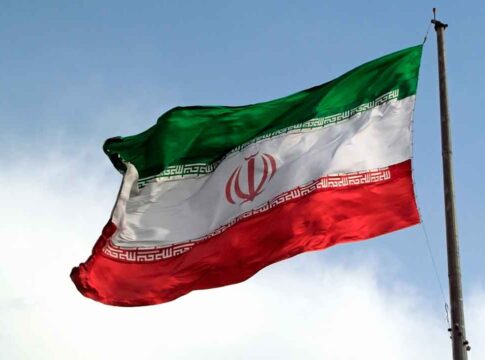Iran’s national security strategy is undergoing a profound shift as the Islamic Republic faces mounting tensions with Israel. While publicly maintaining a defiant stance against Israel, Tehran has increasingly turned its focus inward, implementing technological restrictions. Why is Iran convinced that WhatsApp shares data with Israel?
Iran’s Digital Crackdown Amid Israel Conflict
Iranian state television has urged citizens to delete WhatsApp, falsely claiming the messaging app shares user information with Israel. This move comes as Tehran implements new internet restrictions aimed at controlling the flow of information during escalating tensions with Israel.
WhatsApp has firmly rejected these allegations, stating: “We do not track your precise location, we don’t keep logs of who everyone is messaging, and we do not track the personal messages people are sending one another.” The company expressed concern that these false reports might serve as a pretext to block its services when Iranians need them most.
Iranian state television on Tuesday afternoon urged the country's public to remove the messaging platform WhatsApp from their smartphones, alleging the app — without offering specific evidence — gathered user information to send to Israel.
Read more: https://t.co/V0liW69LFh pic.twitter.com/gvQBYzmjtc
— Jamaica Gleaner (@JamaicaGleaner) June 18, 2025
History of Digital Control and Public Resistance
This is not the first time Iran has targeted popular communication platforms, having previously blocked WhatsApp and Google Play during the 2022 nationwide protests following the death of Mahsa Amini in police custody. Despite such restrictions, WhatsApp remains one of the most widely used apps in Iran, alongside Instagram and Telegram.
Many Iranians circumvent government censorship using virtual private networks (VPNs) and proxy servers to access blocked platforms. The regime’s persistent efforts to control digital communications highlight its concern about the role social media plays in organizing domestic dissent.
Iranian state television on Tuesday afternoon urged people to remove WhatsApp from their smartphones, alleging without specific evidence that the messaging app gathered user information to send to Israel.
https://t.co/rlUc6z84h1— ABC15 Arizona (@abc15) June 18, 2025
Prioritizing Internal Control Over External Threats
Domestic criticism within Iran points to a government more focused on enforcing religious codes than addressing legitimate security concerns. Washington Post columnist David Ignatius noted that Iranians frequently complain “the authorities have spent more time policing hijabs than looking for secret Mossad shipments of drones.”
Iran’s military capabilities appear increasingly constrained in comparison to Israel’s technological advantages and air superiority. While Supreme Leader Ayatollah Ali Khamenei publicly dismisses threats from the United States and Israel, claiming “the Iranian nation is not intimidated,” the regime’s actions suggest a primary focus on preserving internal stability rather than engaging in conventional warfare.
The absence of reliable international military allies further complicates Iran’s strategic position against Israel. This geopolitical isolation, combined with internal economic challenges and growing public discontent, reinforces Tehran’s strategic shift toward prioritizing regime survival through domestic control mechanisms rather than direct military confrontation with Israel.


